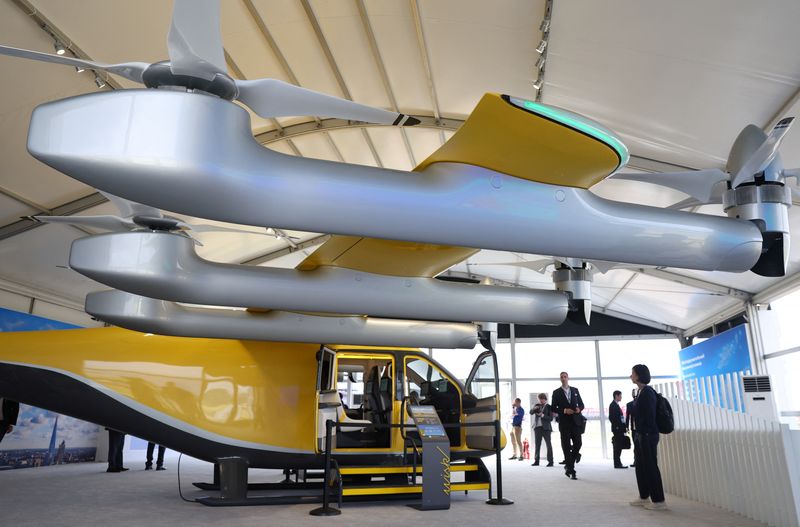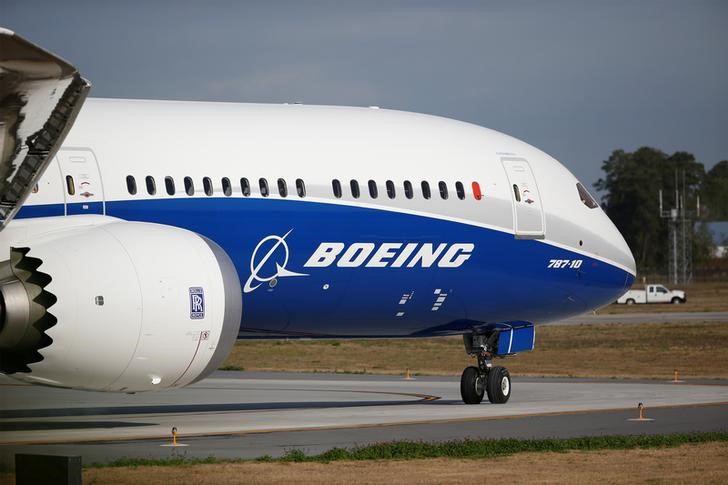By Abhijith Ganapavaram
FARNBOROUGH, England (Reuters) – Boeing-owned Wisk Aero expects its pilotless air taxi to start carrying passengers “later this decade” as it works with the U.S. regulator to gain approvals, its CEO said on Monday, amid skepticism among industry analysts on certification timelines.
Wisk is one of several manufacturers of electric vertical take-off and landing aircraft (eVTOL) that have emerged in recent years with the promise of providing an environmentally friendly mode of transportation in busy cities.
But the industry faces technological hurdles, such as making batteries powerful enough to allow companies to make more trips on a single charge. They also must convince regulators and the public that the planes are safe, a barrier that is higher if the plane is autonomous.
Wisk is developing an autonomous aircraft with four seats and a range of 145 km.
“We are currently testing and producing the elements of this aircraft that we hope to fly by the end of this year,” CEO Brian Yutko told reporters at the Farnborough Airshow.
Wisk’s strategy differs from other major air taxi manufacturers, which are developing models that require a pilot to fly the aircraft. The company has said operators of its planes will save on pilot costs.
But industry experts at Bain say fully autonomous passenger flights are not expected before the end of 2030 and unmanned aircraft will face competition from autonomous vehicles on the road.

“Maximizing passenger occupancy and avoiding return flights with empty aircraft will be key to operator profitability,” said Mattia Celli, one of the authors of the Bain report.
Mountain View, California-based Wisk was previously a joint venture between Boeing (NYSE:) and Kitty Hawk Corp. Last year it became a wholly owned subsidiary of the American aircraft manufacturer.


